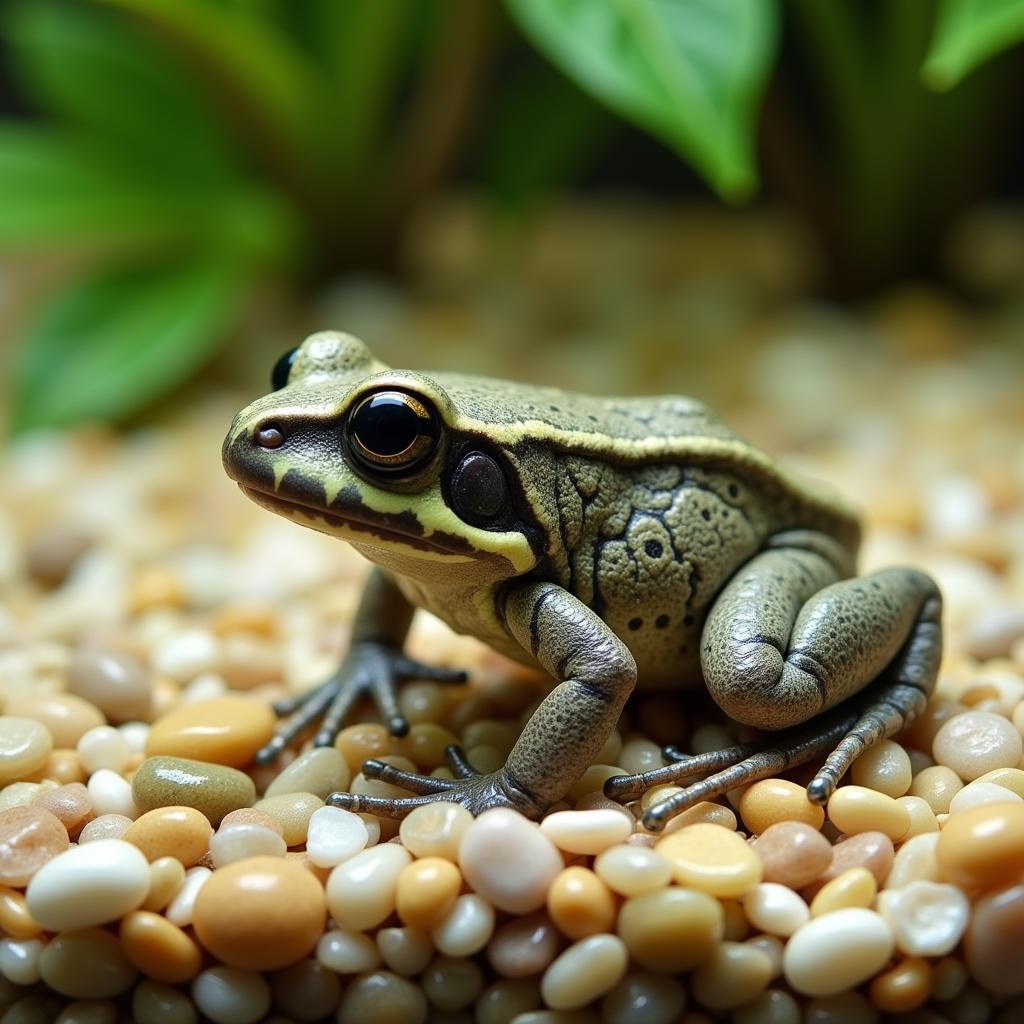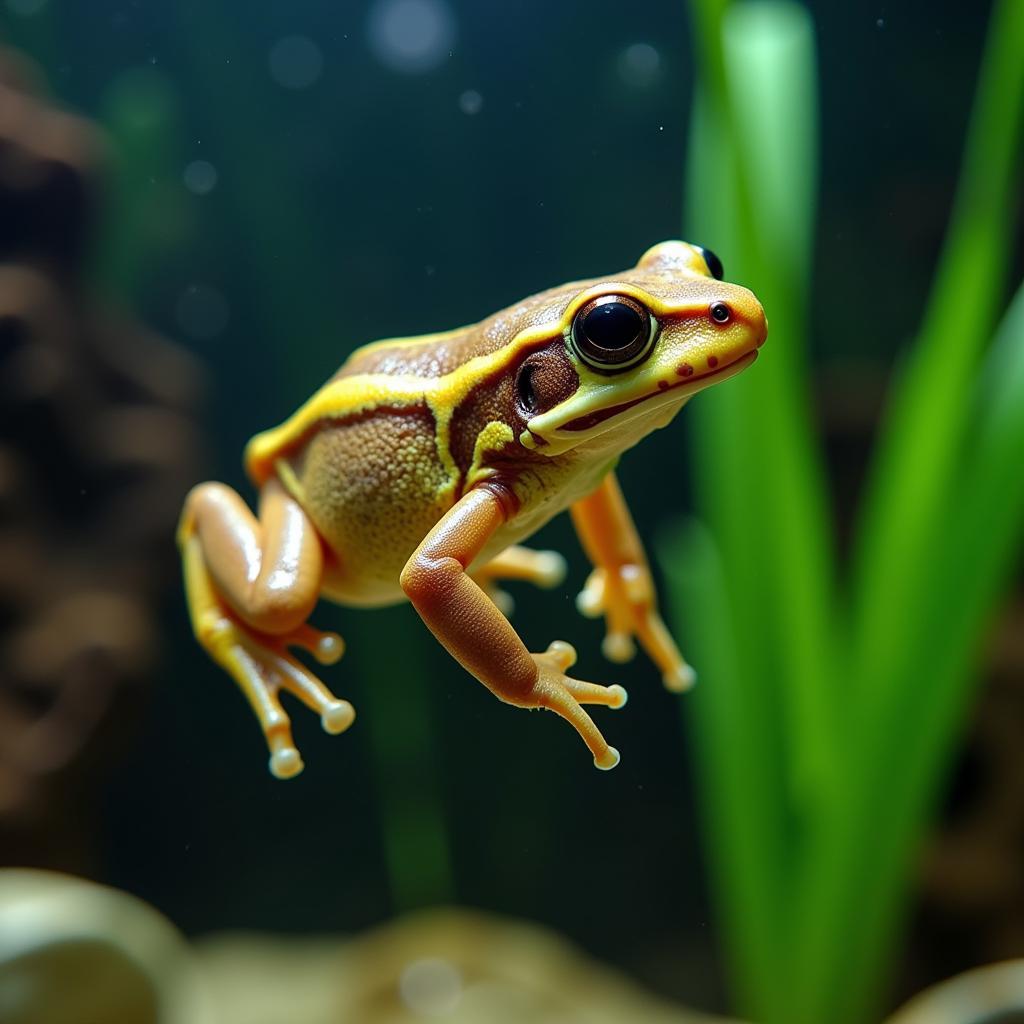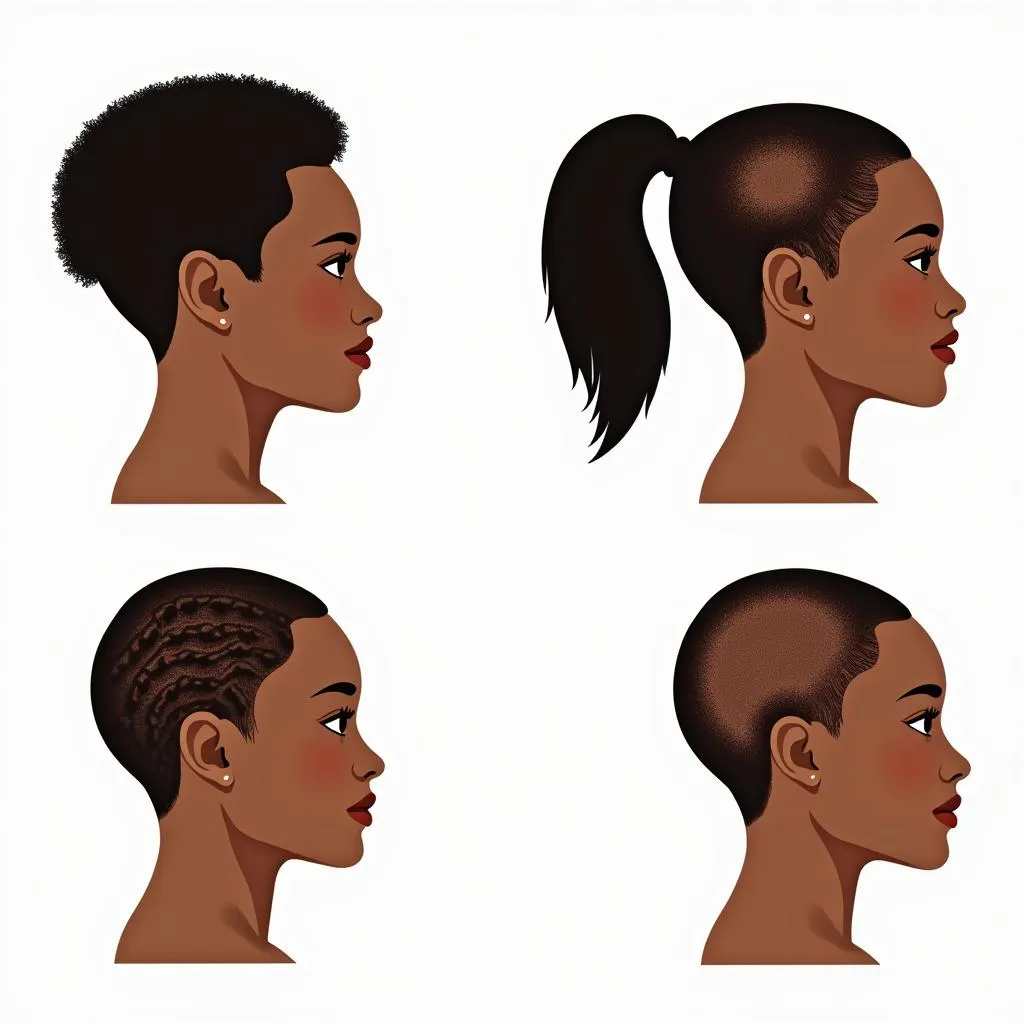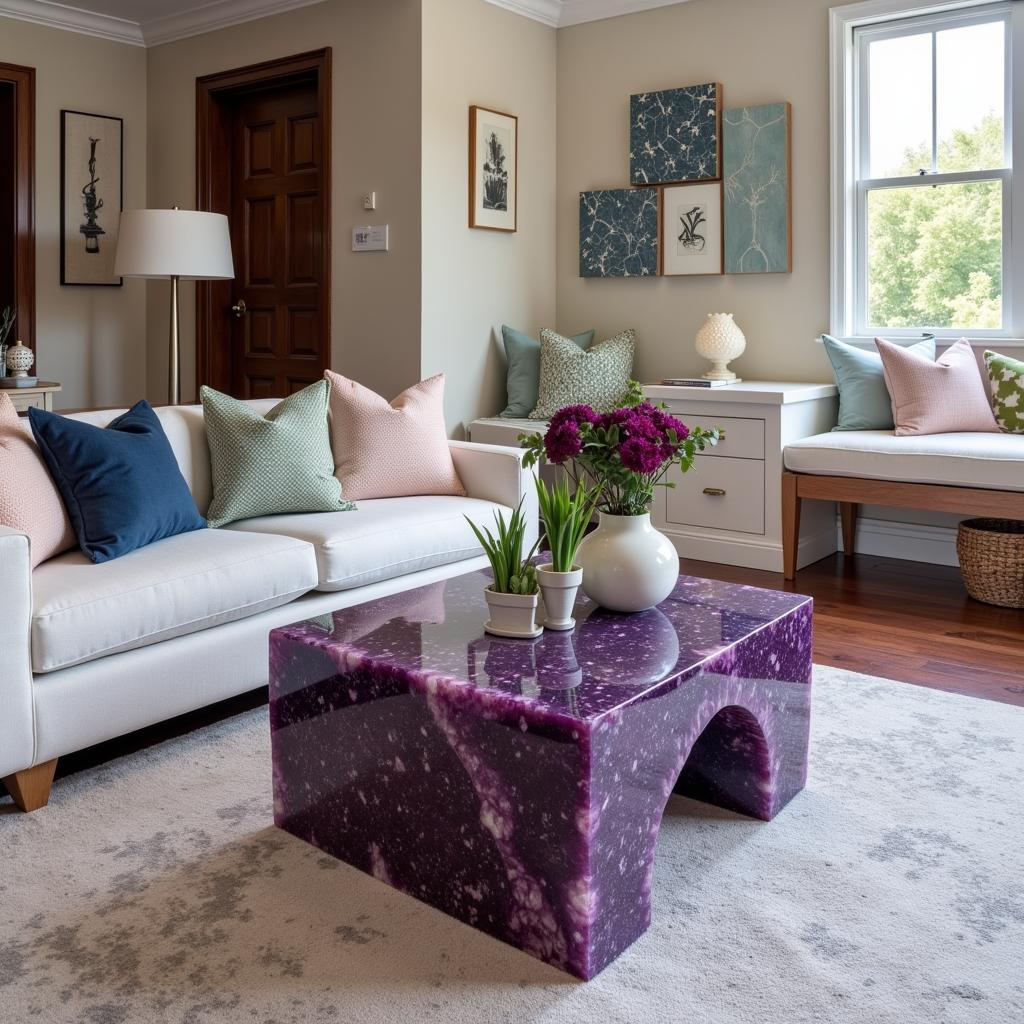Why is My African Dwarf Frog Hiding?
African dwarf frogs are fascinating creatures that bring a touch of the wild into our homes. These tiny amphibians are known for their comical antics and relatively low-maintenance care. But what happens when your usually playful friend starts spending more time in hiding? The truth is, an African Dwarf Frog Hiding can be a sign of several things, ranging from normal behavior to underlying health concerns.
Decoding Your Frog’s Behavior: Is Hiding Normal?
It’s important to remember that African dwarf frogs are primarily aquatic creatures, but they lack the gills of fish. This means they need to surface regularly for air. However, just like any animal, they also value their downtime. Seeing your African dwarf frog hiding isn’t always a reason to panic. They might be:
- Taking a break: Just like us, frogs need rest! After a swim or a feeding session, they may seek shelter to digest their food or simply relax.
- Feeling Shy: Newly introduced frogs often hide as they acclimate to their new surroundings. This is perfectly normal and usually subsides within a few days.
- Seeking a Dark Retreat: African dwarf frogs are crepuscular, meaning they’re most active at dawn and dusk. They might prefer darker spots during the day.
 African dwarf frog resting on aquarium gravel
African dwarf frog resting on aquarium gravel
When Hiding Becomes a Red Flag: Potential Problems
While some hiding is natural, prolonged or excessive hiding can signal a problem. Watch out for these warning signs:
- Changes in Appetite: A healthy frog will readily eat. If your frog is refusing food and hiding, it could indicate illness or stress.
- Lethargy: A healthy frog, even when resting, will appear alert. If your frog seems unusually lethargic or unresponsive, it’s cause for concern.
- Physical Abnormalities: Look for any signs of bloating, discoloration, wounds, or fungus on your frog’s skin. These can indicate health issues.
Creating a Safe Haven: Optimizing Your Frog’s Environment
Providing a comfortable and stimulating habitat is crucial for your frog’s well-being. Here are some tips:
- Aquarium Size Matters: A 5-gallon tank is the minimum for a single frog, but larger is always better!
- Plants Provide Security: Live or silk plants offer hiding spots and mimic a natural environment.
- Water Quality is Key: Maintain clean, dechlorinated water with a suitable filter.
- Appropriate Tank Mates: Avoid aggressive or overly large tank mates that could stress or harm your frog. Check out our guide on African cichlid tank setup for compatible species.
 Healthy African dwarf frog swimming in aquarium
Healthy African dwarf frog swimming in aquarium
Expert Insight:
“Remember,” says Dr. Amina Kenyatta, an aquatic veterinarian specializing in amphibians, “African dwarf frogs are sensitive creatures. Sudden changes in their environment or diet can cause stress. Observe your frog closely and consult a veterinarian if you notice any unusual behavior or symptoms.”
Conclusion:
Observing your African dwarf frog hiding requires careful consideration of their behavior and environment. While some hiding is normal, prolonged or unusual hiding, especially when accompanied by other symptoms, warrants further investigation. By understanding your frog’s needs and creating a safe, enriching habitat, you can ensure they thrive in your care. For more in-depth information on caring for your African Dwarf Frog, visit our comprehensive guide on African dwarf frog care.
FAQs:
-
How long can African dwarf frogs stay hidden? While they can hold their breath for a while, they shouldn’t stay submerged for extended periods. If your frog hasn’t surfaced for air within a few hours, gently check on it.
-
Can I keep more than one African dwarf frog together? Yes, they are social animals and enjoy the company of their own kind.
-
My frog’s skin looks dull. Is this normal? Dull skin can indicate shedding, which is a natural process. However, it can also be a sign of illness or stress, especially if accompanied by other symptoms.
Need More Help?
For personalized advice or to discuss your African dwarf frog’s health, contact us at:
- Phone Number: +255768904061
- Email: [email protected]
- Address: Mbarali DC Mawindi, Kangaga, Tanzania
Our dedicated team is available 24/7 to assist you.

